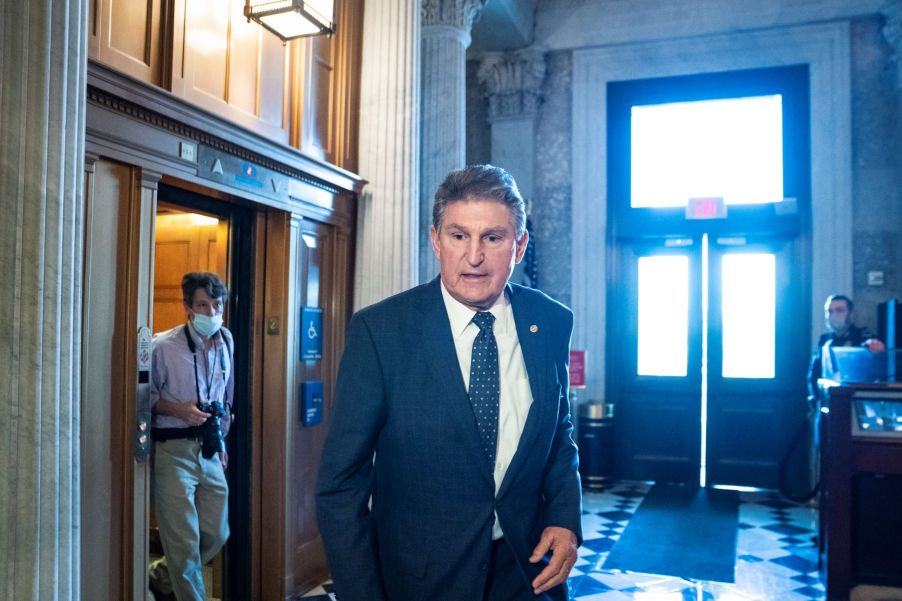
Joe Manchin’s Rejection of Biden’s Climate Plan Causes Negative Change in EV Stocks
EV enthusiasts and novices alike have a lot to be excited about this year. As more automakers explore electric and hybrid technology, consumers welcome each new introduction with open arms. However, politics may have a say in how well these EV producers thrive and continue cranking out new cars, thanks to Joe Manchin.
Senator Joe Manchin of West Virginia has dominated much of the news lately for having rejected the President’s Build Back Better bill. Subsequent headlines showed EV stocks were affected by Manchin’s decision. So, while you might not be keen to keep an eye on what happens in Washington, these political events remind everyone that the future of electric cars may hang in the balance of policy decisions.
Joe Manchin and the rocky political climate around government spending

President Joe Biden introduced an infrastructure package intended to improve, of course, infrastructure, but also to lay in policies and incentives for environmental protections. Usually, Democrats fall in line to support Democrat-sponsored bills. However, that’s not the case with Senator Joe Manchin, the Democrat from West Virginia. Manchin said “no,” effectively dooming the $1.7 trillion bill.
As CNBC explains, part of the Build Back Better bill includes $7.5 billion in funding for EV chargers. These allocated funds would also help sponsor $12,500 tax credits for consumers who buy an EV. Senator Manchin’s move to not support the bill, even for other reasons, may doom the EV landscape, too.
Other bill language included additional tax breaks, like the $7,500 rebate available for any consumer purchasing a vehicle with a battery capacity of 40 kWh and a gas tank capacity of fewer than 2.5 gallons. There is another $500 written into the bill for those cars with battery packs made in the U.S. However, some of these stipends wouldn’t take effect until 2027.
What these conflicts mean for the EV industry
With Senator Joe Manchin refusing to support the Build Back Better plan, the EV market is worried. Proof of that industry anxiety is presented on Wall Street as electric automaker stocks tumbled. EV startups like Lordstown Motors, Faraday Futures, and even Nikola had stocks that dropped over 7%.
Rivian Automotive hit an all-new low, too, with stocks hitting $88.40 per share. Even EV producers with vehicles not eligible for the tax breaks described in the Build Back Better initiative were affected, including Tesla and General Motors.
How does the bill’s failure affect upcoming EVs?
President Biden’s plan includes a goal that half of all new vehicles rolling off the production line by 2030 will be EVs. This includes plug-in hybrid models and battery-powered variations that replace combustion engines. It’s an aggressive goal that spells out massive success for many of the EV startups trying to gain traction right now.
Some of the EV companies consumers to be watching include Rivian Automotive Group, Lucid Group Inc, and Lordstown Motors Corp. You might already be familiar with the Rivian electric models, the R1T and R1S. However, Lordstown Motors is starting limited production of an electric pickup, too, according to The New York Times. Elsewhere, Lucid Motors hopes to redefine the EV luxury space with its 2022 Lucid Air electric cars. Other potentially affected EV automakers include Canno, Inc, Electric Last Mile Solutions Inc, Fisker Inc, NIO Inc, Nikola Corp, and Faraday Future Intelligent Electric Inc.
Some of the latest stock values are showing potential signs of a rebound, despite the stagnant Build Back Better bill in the Senate. Lucid (LCID) is up $1.78, NIO Inc (NIO) is up $4.17, Chargepoint Holdings (CHPT) is up $1.57, and Rivian (RIVN) is back up $4.08, according to the Motley Fool ticker. Ford and Tesla are still down right now but may rebound like other EV players already have.
The future of EVs will depend on the ability of automakers to explore production and the affordability aspect to consumers. Biden’s Build Back Better plan includes many of the incentives needed to accelerate both. For now, though, Senator Joe Manchin can’t buy into the bill, stalling those much-needed tax breaks.


